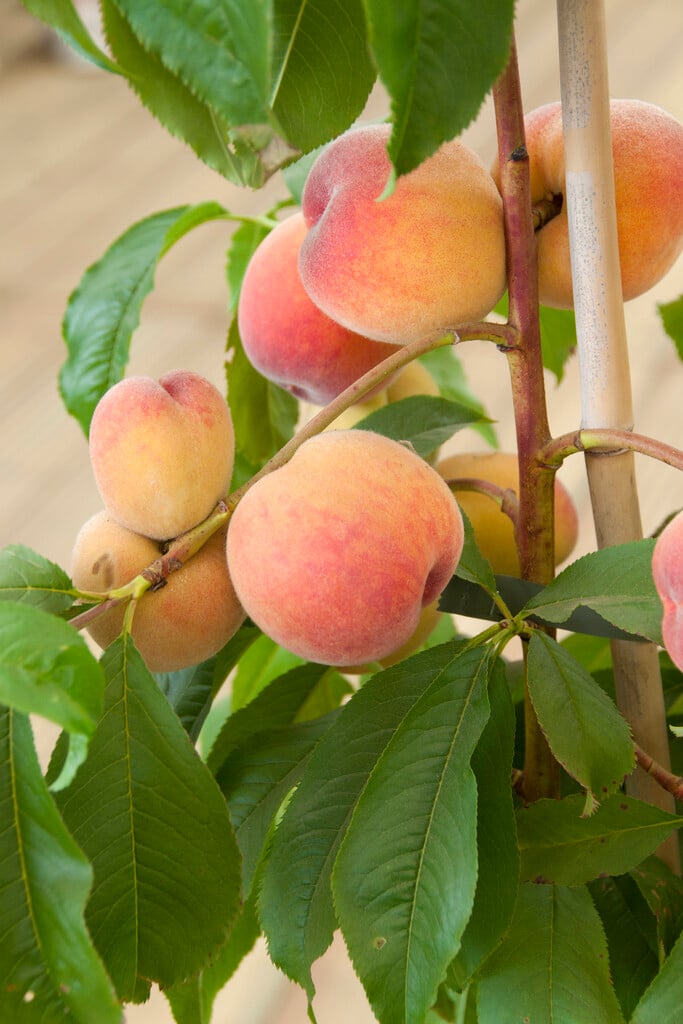Prunus persica 'Avalon Pride' (F)
peach 'Avalon Pride'
A spreading, deciduous tree with pointed, glossy green leaves to 15cm long. Blossom is scented, pink, and produced on bare stems in spring, this is followed by downy, red-blushed peaches with yellow flesh. Peaches are ripe for harvesting in August
Size
Ultimate height
4–8 metresTime to ultimate height
10–20 yearsUltimate spread
4–8 metresGrowing conditions
Moisture
Moist but well–drainedpH
Acid, Alkaline, NeutralColour & scent
| Stem | Flower | Foliage | Fruit | |
| Spring | Pink | Green | ||
|---|---|---|---|---|
| Summer | Green | Yellow Red | ||
| Autumn | ||||
| Winter |
Position
- Full sun
Aspect
South–facing
Exposure
Sheltered Hardiness
H4Botanical details
- Family
- Rosaceae
- Native to GB / Ireland
- No
- Foliage
- Deciduous
- Habit
- Spreading branched
- Genus
Prunus can be deciduous or evergreen trees or shrubs with showy flowers in spring, and often good autumn foliage colour. Some have edible fruit in autumn, and a few species have ornamental bark
- Name status
Accepted
- Horticultural Group
- This genus produces fruit, but not necessarily edible fruit
How to grow
Cultivation
Plant in a sunny, sheltered site with moist but well-drained, fertile soil, away from frost pockets. Can be grown as a standard or bush in milder areas, or fan-trained against a south-facing wall; final size will depend on the rootstock used. Peach blossom is early, so flowers may need protection from frost.
Propagation
Peaches are usually propagated by grafting onto rootstocks for fruit. They can be propagated from seed, although the fruit from the seedlings is likely to be inferior in flavour to the parent, and seed-raised trees take four to five years to bear fruit
Suggested planting locations and garden types
- City and courtyard gardens
- Cottage and informal garden
- Wildlife gardens
- Edible fruit
Pruning
Prune established fans in spring and summer. Free standing peaches are pruned in the same way as pruning acid cherries
Pests
May be susceptible to aphids and caterpillars, birds and squirrels can damage fruit
Diseases
May be susceptible to silver leaf, honey fungus, bacterial canker and brown rot. This cultivar has some resistance to peach leaf curl, cover in winter to provide further protection from infection
Get involved
The RHS is the UK’s gardening charity, helping people and plants to grow - nurturing a healthier, happier world, one person and one plant at a time.
